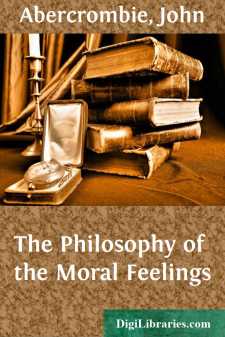Categories
- Antiques & Collectibles 13
- Architecture 36
- Art 48
- Bibles 22
- Biography & Autobiography 813
- Body, Mind & Spirit 142
- Business & Economics 28
- Children's Books 17
- Children's Fiction 14
- Computers 4
- Cooking 94
- Crafts & Hobbies 4
- Drama 346
- Education 46
- Family & Relationships 57
- Fiction 11829
- Games 19
- Gardening 17
- Health & Fitness 34
- History 1377
- House & Home 1
- Humor 147
- Juvenile Fiction 1873
- Juvenile Nonfiction 202
- Language Arts & Disciplines 88
- Law 16
- Literary Collections 686
- Literary Criticism 179
- Mathematics 13
- Medical 41
- Music 40
- Nature 179
- Non-Classifiable 1768
- Performing Arts 7
- Periodicals 1453
- Philosophy 64
- Photography 2
- Poetry 896
- Political Science 203
- Psychology 42
- Reference 154
- Religion 513
- Science 126
- Self-Help 84
- Social Science 81
- Sports & Recreation 34
- Study Aids 3
- Technology & Engineering 59
- Transportation 23
- Travel 463
- True Crime 29
The Philosophy of the Moral Feelings
by: John Abercrombie
Categories:
Description:
Excerpt
NATURE AND IMPORTANCE OF THE SCIENCE
OF THE MORAL FEELINGS.
Man is to be contemplated as an intellectual, and as a moral being. By his intellectual powers, he acquires the knowledge of facts, observes their connexions, and traces the conclusions which arise out of them. These mental operations, however, even in a high state of cultivation, may be directed entirely to truths of an extrinsic kind,—that is, to such as do not exert any influence either on the moral condition of the individual, or on his relations to other sentient beings. They may exist in an eminent degree in the man who lives only for himself, and feels little beyond the personal wants, or the selfish enjoyments of the hour that is passing over him.
But, when we contemplate man as a moral being, new relations open on our view, and these are of mightier import. We find him occupying a place in a great system of moral government, in which he has an important station to fill and high duties to perform. We find him placed in certain relations to a great moral Governor, who presides over this system of things, and to a future state of being for which the present scene is intended to prepare him. We find him possessed of powers which qualify him to feel these relations, and of principles calculated to guide him through the solemn responsibilities which attend his state of moral discipline.
These two parts of his mental constitution we perceive to be remarkably distinct from each other. The former may be in vigorous exercise in him who has little feeling of his moral condition,—and the latter may be in a high state of culture in the man, who, in point of intellectual acquirement, knows little beyond the truths which it most concerns him to know,—those great but simple principles which guide his conduct as a responsible being.
In a well-regulated mind, there is an intimate harmony and co-operation between these two departments of the mental economy. Knowledge, received through the powers of sensation and simple intellect, whether relating to external things, or to mental phenomena,—and conclusions derived from these through the powers of reasoning, ought all to contribute to that which is the highest state of man,—his purity as a moral being. They ought all to lend their aid towards the cultivation of those principles of his nature which bind him to his fellow-men;—and those higher principles still, which raise his feeble powers to the Eternal Incomprehensible One, the first great cause of all things, and the moral Governor of the universe.
A slight degree of observation is sufficient to convince us, that such a regulated condition of the mental constitution does not exist in the generality of mankind. It is not my present purpose to inquire into the causes by which this is primarily deranged; but it may be interesting to trace some of the circumstances which bear a part in producing the derangement. In our present state of being, we are surrounded with objects of sense; and the mind is kept, in a great degree, under the influence of external things....


